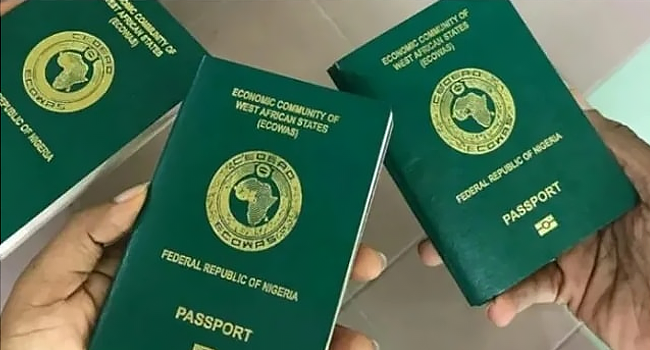The Nigeria Labour Congress (NLC) has faulted the recent 100 per cent increase in the cost of obtaining and renewing passports, describing the move as an act of exploitation against ordinary citizens.
On August 28, 2025, the Nigeria Immigration Service (NIS) announced that effective September 1, 2025, the cost of a standard 32-page passport with five-year validity would rise to N100,000, while the 64-page passport with 10-year validity would now cost N200,000.
This move amounts to a near-100 per cent increase over the rates in place from September 2024, when the fees were adjusted to N50,000 and N100,000 respectively .
Reacting to the development, NLC’s acting general-secretary, Comrade Benson Upah, told LEADERSHIP Weekend that the labour movement viewed the increase with pain, embarrassment and resentment.
He noted that a passport is a sovereign right and identity of the citizen and should not be turned into what he called a source of exploitation.
The labour centre accused the federal government of treating passport issuance as a privilege reserved for the wealthy, instead of a basic service accessible to all citizens.
“Characteristic of this government, it sees passport possession as a privilege to be gold-mined,” he said,
The NIS defended the new pricing, emphasising its intent to uphold the quality and integrity of Nigerian passports while improving service delivery. The agency reiterated that diaspora applicants would continue to pay US$150 for a five-year passport and US$230 for a 10-year passport.
Despite official explanations, the timing of the hike has drawn criticisms, with many Nigerians arguing that the hike is ill-timed and inconsiderate given the current economic hardship.
The labour leader added that government should instead focus on enhancing the value of the Nigerian passport and ensuring that it is easily available to citizens who need it.
The NLC further argued that the new policy runs contrary to the government’s responsibility of easing the burden of living on the people. The congress stressed that raising tariffs on essential documents does not provide a sustainable solution to the country’s economic challenges.
“It should be noted that taxing everything in sight cannot be a substitute for taking decisions that can kickstart our economy. Taxes without a self-renewing productive base don’t,” Upah warned.
According to Upah, the NLC would formally draw the government’s attention to the consequences of the hike and urge policymakers to consider global best practices in passport pricing.
“We will draw the attention of government to the consequences of this as well as urge it to advert its mind to other country situations on passport possession and tariffing,” he said.






